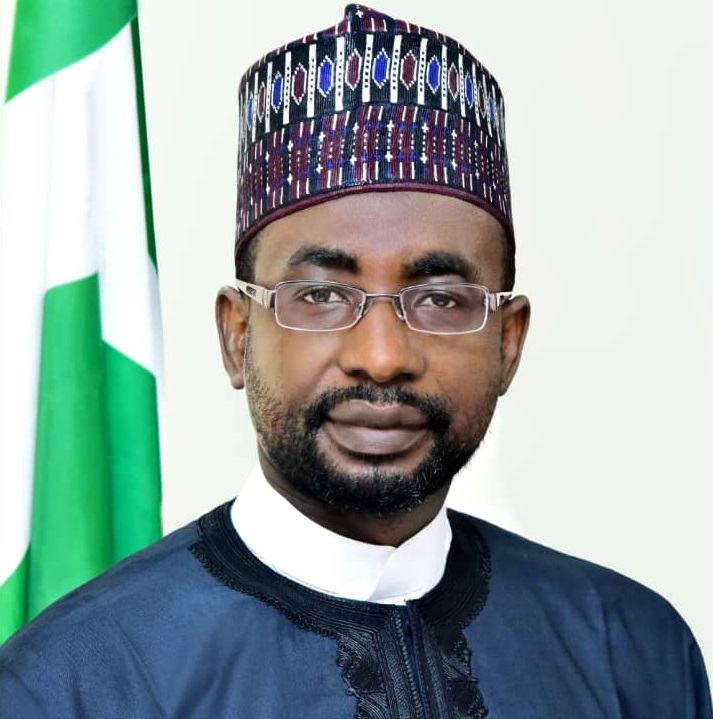Buhari presents N20.51trn 2023 budget proposal to joint session of NASS
By Haruna Salami
President Muhammadu Buhari, on Friday presented the 2023 budget proposal of N20.51 trillion to a joint session of the National Assembly (NASS).
Buhari, who addressed the joint session of the National Assembly accompanied by the Vice President and ohter Federal Executive Council members, unveiled a budget of N20.5 trillion for the 2023 fiscal year.
According to the president, the 2023 budget will be his last budget to be laid before the NASS as the second tenure of his administration expires on May 29, 2023.
He described the 2023 appropriation bill as a budget of fiscal sustainability and transition.
The president said “a total expenditure of N20.51 trillion is proposed for the Federal Government in 2023. This includes 2.42 trillion Naira spending by Government-Owned Enterprises.
“The proposed N20.51 trillion 2023 expenditure comprises: Statutory Transfers of N744.11 billion; Non-debt Recurrent Costs of N8.27 trillion; Personnel Costs of N4.99 trillion; Pensions, Gratuities and Retirees’ Benefits of N854.8 billion.
”It also includes Overheads of N1.11 trillion and Capital Expenditure of N5.35 trillion, including the capital component of Statutory Transfers; Debt Service of N6.31 trillion; and sinking Fund of N247.73 billion to retire certain maturing bonds.
“We expect total fiscal operations of the Federal Government to result in a deficit of 10.78 trillion Naira,’’
According to him, this represents 4.78 per cent of estimated GDP, above the three per cent threshold set by the Fiscal Responsibility Act 2007.
He said the principal objective in 2023 was to maintain fiscal stability and ensure a smooth transition to the incoming administration.
In his opening speech, the Senate President, Ahmad Lawan who lamented that Nigeria economy is still challenged by dearth of revenues, proffering suggestions on how to reverse the increasing trend of deficits in the nation’s budget.
According to him, “the main source of revenue to the Nigerian Government is Oil and Gas and always consider the diversification of the economy as crucial and its indeed crucial’.
Lawan asserted that the idea of deploying revenues from the Oil and Gas to support the diversification into real sectors like Agriculture, Manufacturing, and Mining among others now under serious threat.
He noted that the large scale and massive stealing of Nigeria oil, is of great concern, as it reduces drastically the revenues available to the Government.
Lawan opined that with conflicting figures, projections have put the nation losses from this malaise at between 700,000 to 900,000 barrels of crude Oil per day, leading to about 29 to 35 per cent loss in Oil revenue in the first quarter of 2022.
According to him, the action represents an estimated total fall from N1.1 trillion recorded in the last quarter of 2021 to N790 billion in the first quarter of this year.
“The situation has worsened. Recently, the loss of our Oil has reached 1 million barrels per day. Translated into monetary terms, our loss is monumental. The figures show we are not able to meet the OPEC daily quota of 1.8million barrels per day.
Lawan also called for the completion of the ongoing legacy projects of the Buhari government.
“Mr. President, I strongly believe that the 2023 Budget should target at completion of ongoing projects, especially our legacy projects.
“This is not only because of the importance of infrastructure to the stimulation of economic activities but also to entrench the efforts as a legacy of this administration.
“Our focus on this sector has been exemplary and the benefit to our growth and development cannot be overstated.
“Mr. President, we note the government drive to address the impact of climate change and reverse its effect. Though complicated and dynamic, we should not rest on our oars in dealing with issues like, floods, drying wetlands, desertification, and coastline erosion.
“The menace of flooding in many parts of our country has been particularly worrisome. It has devastated homes, and disrupted families, lives and livelihoods. We will need to take proactive measures to tackle this and especially manage our Dams and other water bodies to curtail the menace of flooding, now becoming a national disaster.



